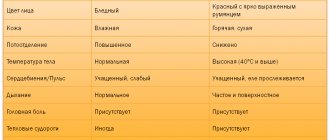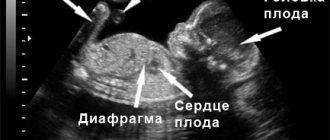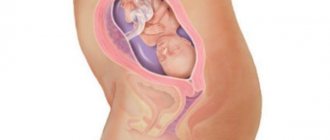Buckwheat in the diet
Did you know that buckwheat is one of the plants that cannot be genetically modified? When growing buckwheat, no fertilizers are used, since the unpretentious crop simply does not need feeding. This makes buckwheat a safe natural product, the quality of which cannot be doubted.
The beneficial properties of buckwheat porridge were known back in the twentieth century, when it received the title of “queen of cereals.” In our country, buckwheat is actively grown. Housewives love it for its ease of preparation and versatility when combined with other products - buckwheat porridge is delicious with meat, vegetables, fruits, and milk. It is not only possible, but also necessary to be consumed even by small children. One of the first cereals that a baby is introduced to when introducing complementary foods is buckwheat.
What kind of buckwheat is there?
It would seem that we all know what buckwheat looks like. But there are several varieties of cereals that can be found on sale:
- buckwheat: whole grains are peeled from the husk using steam treatment; this type of buckwheat is used for preparing porridges and soups;
- chaff: the grains are crushed after threshing, resulting in a small piece that cooks faster than the kernel, excellent for preparing viscous porridges and casseroles;
- green buckwheat: this grain is not fried, so it is also called raw, it retains the maximum of nutrients;
- Smolensk buckwheat: grains are less than 2 millimeters in size, they contain virtually no fiber, but are rich in starch; the cereal is often used for baking.
Whole grain - kernel is considered the most popular variety. When choosing a product in the store, try to buy cereals that have a uniform light brown tint. This porridge will be crumbly and healthy. But the dark brown grain was subjected to too much heat treatment. Many of its qualities were lost.
Tip: unroasted buckwheat is the healthiest; it can be recognized by the light beige color of the grains. It needs to be germinated and steamed before use. Having boiled the cereal in the traditional way, its usefulness will be equal to brownish fried buckwheat.
Types of buckwheat
Since ancient times, buckwheat has become famous as one of the revered crops. They used to call her “Mother Buckwheat.”
There are several varieties of buckwheat, and each of them has certain properties and characteristics:
- Yadritsa. The most popular type. It is distinguished by whole grains, the shell of which is removed by cooking or steaming. Porridge made from this type of cereal is tasty and crumbly.
- Smolensk buckwheat. The main difference between this type is the small grains of the cereal. Recommended for use by people suffering from gastrointestinal diseases. It has the structure of flour, so it is often used in cooking as an ingredient for baking.
- Green buckwheat. This type of cereal is subjected to steam treatment, due to which the nutrients in it are preserved, and these are magnesium, phosphorus, iron, potassium, calcium.
- Chop. This is a crushed type of cereal. Usually used in baby food and in the preparation of cereals. Quickly digested by the body.
How is buckwheat useful during pregnancy?
Buckwheat has a rich amino acid composition; in this regard, no plant food product can compete with it. Buckwheat contains lysine and methionine - these are essential amino acids, that is, amino acids that the human body is not able to synthesize on its own and must be obtained from the outside.
Lysine is necessary for the proper functioning of the immune system and the body's ability to suppress the proliferation of viruses. In addition, the amino acid is responsible for calcium absorption and tissue regeneration. With a lack of lysine, the likelihood of developing anemia increases.
Methionine is necessary for hair growth and bone development, it protects the liver from obesity, and also neutralizes toxic substances that enter the body.
Buckwheat porridge during pregnancy is also useful due to the vitamin P contained in the cereal - rutin. It regulates blood pressure and strengthens the walls of blood vessels. B vitamins in porridge are necessary for the body of the expectant mother to reduce irritability and nervousness, strengthen muscles, hair and nails. Cereals contain calcium, potassium and magnesium, which are necessary for the proper development and growth of the child’s body. Buckwheat is rich in iron, which is very important for most pregnant women. With iron deficiency, a woman may develop anemia, which threatens oxygen starvation of the fetus.
Important: although buckwheat contains iron, it is worth knowing that it is absorbed by the body much worse than that obtained from animal products.
Buckwheat to maintain your figure during pregnancy
Buckwheat can become a daily diet product during pregnancy. In addition to the fact that it is incredibly healthy, it can be considered a dietary dish, of course, if it is eaten without adding other high-calorie ingredients.
Despite its low calorie content, buckwheat is very nutritious due to the slow carbohydrates and quickly digestible proteins it contains. Slow carbohydrates in buckwheat grains give a long-lasting feeling of satiety, without fluctuations in blood glucose levels, as happens when consuming fast carbohydrates.
Note: 100 grams of raw cereal contains 330 kilocalories. This amount of grains is enough to prepare 2 servings of porridge.
Safety of buckwheat diet during pregnancy
The “Queen of Cereals” plays the “main violin” in many diets and nutrition systems. But the buckwheat diet during pregnancy, both in its original form and in various variations, can be unsafe for a woman and her child.
Important: going on a diet on your own, without consulting a doctor, may be unsafe!
A mono-diet, which involves eating only buckwheat porridge without salt and oil for 7 days, is a strict restriction that is stressful for a woman’s body. At the same time, despite the benefits of buckwheat for pregnant women, such a meager diet will deprive the child of the necessary micronutrients that should come to him with food. This is the very case when a useful product can cause serious harm.
We recommend that you find out why pregnant women may be prescribed a combination of Ginipral and Verapamil.
You can find reviews from pregnant women about Femibion vitamins here.
Features of the buckwheat diet during pregnancy
The buckwheat diet for pregnant women can only be used if the doctor insists on following it. Indications may include excessive weight gain and severe swelling. The kidneys of a pregnant woman are under increased stress, so water may be retained in the body of the expectant mother. Excess weight can harm both the course of pregnancy and interfere with the woman herself, negatively affecting her activity and mood.
The buckwheat diet during pregnancy should under no circumstances last long:
- if only porridge is left in the diet, without additives or seasonings, such a diet can last a maximum of a couple of days, and it is better during pregnancy to do only one fasting day on buckwheat every couple of weeks;
- If the menu, in addition to buckwheat, also includes fermented milk products, vegetables and fruits, you can stick to this diet for about a week.
Find out why a narrow pelvis is dangerous during pregnancy.
What are Montgomery tubercles and what are they needed for, we will tell you here.
The best option would be to include buckwheat in your daily diet, in combination with other products. It's better to eat porridge for breakfast. Thanks to the content of slow carbohydrates in its composition, buckwheat eaten in the morning will allow you to avoid feeling hungry until lunchtime and you will not have to make snacks. For the rest of your meals, try to include:
- steamed, fresh or boiled vegetables;
- baked or boiled chicken, rabbit, turkey, veal;
- steamed, boiled or baked fish;
- fermented milk products, low-fat cottage cheese, cheese;
- eggs;
- greenery;
- fresh fruits;
- clean water, green tea.
To maintain your pregnancy weight, you need to eat right. You can’t eat “for two”; you should avoid sweet, smoked and fried foods. This will require a lot of willpower at first, but eating right all the time is much easier than constantly subjecting your body to tests in the form of diets.
Now you know how buckwheat is beneficial for pregnant women. Try to enrich your diet while carrying a baby with healthy and high-quality products, and buckwheat can be one of them.
Is it possible to eat buckwheat
Buckwheat porridge as a dessert or breakfast is usually made on or. It turns out to be a tasty and satisfying dish. However, it is necessary to figure out whether it is worth using it during pregnancy.
With milk
Milk and buckwheat complement each other well, supplying the expectant mother with the required vitamins and minerals. The dish is quickly digested and does not overload the gastrointestinal tract. A prolonged feeling of fullness allows you not to worry about your figure, but to focus on proper nutrition.
Milk buckwheat porridge is contraindicated only in two cases:
- individual intolerance to cereals;
- lactose intolerance.
Porridge has weak diuretic properties due to the addition of milk, therefore it removes excess liquid, preventing the appearance of edema. It is also recommended to consume buckwheat with milk daily for those women who have been diagnosed with pancreatitis (inflammation of the pancreas).
With kefir
This option is used much less frequently, since it is necessary to prepare the buckwheat in advance. Raw cereals are washed under running water and then doused with boiling water. After that, it is poured with low-fat kefir and placed in the refrigerator overnight. You can eat the prepared dish in the morning.
Did you know?
The substance rutin is obtained from buckwheat, which is used in traditional medicine to treat fragility of blood capillaries.
Buckwheat with kefir will help pregnant women who suffer from unstable blood sugar levels. It is indicated for both diabetics and those who have a lack of glucose.
Consuming the product in the morning is especially beneficial, since after sleep the body experiences a lack of nutrients and energy, which causes the nervous system to suffer. Porridge with kefir supplies both fast and slow carbohydrates, which stabilizes the condition and normalizes sugar levels. Kefir during pregnancy is contraindicated in the following cases:
- chronic pancreatitis;
- stomach or intestinal ulcer;
- increased acidity of gastric juice.
Important!
The daily intake of kefir for an adult should not exceed 0.5 liters.
The benefits and harms of buckwheat for a pregnant woman
Buckwheat contains those substances that are necessary both to maintain the health of the mother and for the normal formation of the fetus.
First of all, it is a routine. The component helps strengthen the blood vessels of the expectant mother, increases their elasticity and maintains normal blood pressure.
Lipotropic substances also improve cardiovascular health and protect the liver. If we talk about the effect on the heart and blood vessels, the iron in buckwheat protects against the development of anemia and normalizes hemoglobin levels. In addition, in this way it is possible to avoid hypoxia not only of the expectant mother, but also of the fetus.
It is difficult to imagine a pregnant woman who would not be prescribed folic acid supplements. The substance is one of the most important, ensuring the normal course of pregnancy, maintaining the mother’s condition and protecting against congenital malformations.
Vitamin PP in combination with threonine and tryptophan normalize the acid-base balance and speed up metabolism.
Iodine has a general strengthening effect on the entire body and helps strengthen the immune system. Flavonoids interact with vitamin C and significantly enhance its effect.
The dietary fiber that buckwheat contains helps to naturally cleanse the body, removes toxins and cholesterol, and prevents constipation.
Buckwheat is also rich in proteins and carbohydrates. Proteins perform a construction function in the body of the mother and fetus. In particular, lysine has a huge impact on the formation of healthy organs and systems of the child; it is a component that is part of enzymes, hormones, tissues, and muscles. Protein is the foundation of the human body.
Buckwheat contains so-called “healthy” carbohydrates - not those that are rich in sweets and baked goods. These carbohydrates are quickly absorbed by the body, remove accumulated toxins, thereby increasing the body's defenses.
For all its rich composition and nutritional value, buckwheat is low in calories, although it gives you a feeling of fullness for a long time.
If we talk about the potential harm of buckwheat, it comes down to three points:
- Buckwheat, although rare, can cause allergies. Therefore, you should be more careful with its regular use, especially in the third trimester: allergies may appear later in the baby.
- Often women, afraid of gaining extra pounds during pregnancy, resort to so-called mono-diets. Simply put, in the last weeks of pregnancy, they choose one or more fasting days, when they can only afford buckwheat, believing that its varied composition can replace several dishes and products. Such unloading can be beneficial for the body, but not during pregnancy.
- Buckwheat contains starch, so its use may be questionable if you have diabetes.
Which buckwheat to choose when buying
In addition to the usual whole buckwheat in kernels, you can also buy varieties of cereals .
- Buckwheat, or prodel. Crushed cereals are well and quickly absorbed by the body and are perfect for preparing salty and sweet porridges.
- Green buckwheat. The kernel can be processed with steam and at the same time retains a maximum of useful substances. This buckwheat is especially useful during pregnancy.
- "Smolenskaya". Buckwheat with unusually small grains. You can even use this grain as flour and breading. Helps improve the functioning of the gastrointestinal tract.
- Buckwheat flakes. A great option to diversify your breakfast. Although the cereal is dietary, it is very nutritious.
- Buckwheat flour. Baking made from buckwheat flour, especially yeast-free ones, is very useful, as it can maintain weight and at the same time cleanse the body.
Important! Green buckwheat can sprout. They can also be eaten and are extremely beneficial for the body.
Ways to eat buckwheat during pregnancy
It turns out that you can use buckwheat in an “interesting position” in different ways.
Firstly, this is, of course, consumption in the “classic” form: as a side dish, porridge or as part of soup. Many women prefer this particular cereal because it is quite filling and nutritious, but at the same time low in calories, and also very healthy.
Secondly, buckwheat perfectly relieves heartburn, which is often a concern during pregnancy. To do this, you need to chew 1 teaspoon of cereal in the morning on an empty stomach, after rinsing it well under running water.
Externally, the kernel has been used to treat the throat for a long time. A small amount of cereal is preheated in a dry frying pan, poured into a stocking and applied to a sore throat or tied around it.
Eating buckwheat with milk is indicated for chronic pancreatitis, unless, of course, you are allergic to milk. With this diagnosis, you must first consult a doctor.
Precautionary measures
Cereals during pregnancy cannot replace meat, fish, vegetables and fruits. For this reason, going on a buckwheat diet to get rid of extra pounds is dangerous. The product is devoid of many vitamins and minerals, which will lead to their lack in the body of the mother and child.
This is fraught with underdevelopment of the fetus, as well as various congenital diseases.
During pregnancy, porridge should be eaten with caution, as it is a potential allergen for the fetus. To rule out allergies in your baby, you should consult a specialist. It is necessary to limit the proportion of buckwheat in the daily diet for the following diseases:
- gastritis;
- renal failure;
- stomach or intestinal ulcer.
Did you know?
Buckwheat helps fight insomnia.
Special pillows are stuffed with buckwheat husks, which are recommended for those who have sleep problems to sleep on. Buckwheat porridge is a cheap, healthy product that has a record protein content among all cereals. During pregnancy, you should not resort to a buckwheat diet, or eat dry porridge for constipation.
Remember that buckwheat contains very little calcium, so you need to consume dairy products along with it.
Buckwheat can rightfully be called a popular favorite. It is found in every kitchen, it is added to soups and porridge, used as an independent dish and as a side dish. Everyone knows that it is useful, although they don’t really think about why, but it hardly occurred to anyone that such a familiar cereal could be harmful. In this article we will reveal all the secrets of buckwheat, tell you how and to whom it is useful and what harm it can cause.
Can pregnant women eat buckwheat?
Eating buckwheat can provide the body with a huge amount of nutrients and vitamins. Doctors recommend eating it throughout pregnancy. This is an indispensable dish in the diet of the expectant mother. Porridge made from this cereal is very nutritious, tasty and aromatic.
In the early stages
The product can be of particular benefit in the early stages of pregnancy. Thanks to folic acid, which is very high in buckwheat, the consumption of this cereal affects the proper development of the child in the womb. Also, the above component is very important for avoiding the formation of defects in the baby. It is in the early stages of pregnancy that the baby develops all its vital organs.
In the first trimester, the embryo absorbs the maximum amount of nutrients; buckwheat can be the source of most of them. A lack of useful components in the body can negatively affect the child’s health.
It is also worth noting that pregnant women often suffer from such a problem as heartburn. Often pregnant women experience this ailment in the early stages. Chewing buckwheat helps relieve these unpleasant sensations.
In the later stages
In the last months of pregnancy, you may encounter the problem of gaining excess weight. For women, this moment is always very important, because controlling your kilograms is much more difficult when you are pregnant. Diets and food restrictions are strictly prohibited. Nutrition should be complete. Therefore, buckwheat porridge in late pregnancy can greatly help balance your diet and not increase the size of your clothes.
Can it be consumed with milk?
There are not many options for preparing this cereal. Buckwheat porridge with milk is a wonderful option for a tasty, nutritious and healthy breakfast. If we talk about eating the dish during pregnancy, then in this case there are very few contraindications.
- Among them:
- individual intolerance to the product;
- lactose intolerance.
It is worth noting that milk complements buckwheat well. Cereals in this form are quickly digested and do not overload the gastrointestinal tract. It is very important for pregnant women not to overeat, so this dish is ideal for them. After all, after it, the expectant mother feels full for a long period.
Porridge with milk is recommended for women who suffer from pancreatitis. It can normalize the condition of the pancreas.
Calorie content and product composition
Buckwheat is a valuable product that is rich in vitamins and minerals, and its nutritional value allows the porridge to be used on an ongoing basis.
The calorie content of 100 g of cereal is 308 kcal. At the same time, the calorie content of ready-made buckwheat porridge in water does not exceed 100 kcal per 100 g.
Nutritional value of cereals:
- proteins - 12.6 g;
- fats - 3.3 g;
- carbohydrates - 57.1 g.
Minerals:
- potassium;
- calcium;
- silicon;
- magnesium;
- phosphorus;
- iron;
- iodine;
- cobalt;
- manganese;
- copper;
- molybdenum;
- selenium;
- chromium;
- zinc.
Vitamins:
- B1;
- B2;
- B6;
- B9;
- E;
- PP.
Please note that 100 g of raw buckwheat contains half the daily value of magnesium and molybdenum, and 40 g is enough to meet the daily requirement for silicon.
The product, prepared with milk with the addition of a small amount of sugar, has an energy value of 118 kcal.
Nutritional value of milk porridge:
- proteins - 4.2 g;
- fats - 2.3 g;
- carbohydrates - 21.6 g.
Adding milk increases the value of the product due to the following vitamins and minerals:
- B5;
- B12;
- calcium;
- sodium.
The benefits of buckwheat during pregnancy
This product has a unique composition of useful substances, including:
- routine;
- calcium;
- iodine;
- vitamin E;
- lipotropic elements;
- zinc;
- iron;
- folic acid;
- anticholesterol substances;
- threonine and various amino acids;
- alimentary fiber;
- magnesium and many others.
Thanks to the above composition, buckwheat is one of the main nutritional components for the expectant mother. Without exaggeration, this product is one of the ten most important dishes for pregnant women.
- Regular consumption of buckwheat can:
- strengthen blood vessels;
- improve liver function;
- normalize hemoglobin levels and is an excellent prevention of anemia;
- regulate acid-base balance;
- strengthen the immune system;
- remove cholesterol from the body;
- improve well-being;
- avoid hypoxia in mother and child, etc.
For edema
For pregnant women, swelling is a very common problem. The accumulation of excess fluid in the body can cause certain inconveniences. Buckwheat helps well in this matter. Porridge can be cooked with milk and water. Regular use of the product will help avoid swelling.
Benefits and contraindications of buckwheat
Buckwheat during pregnancy is included in the Top 10 healthy foods due to its vitamin and mineral composition. The most important element in cereals is rutin, which strengthens blood vessels and normalizes blood pressure. Niacin (vitamin PP) regulates the acid-base balance, and lipotropic enzymes improve the functioning of liver cells. A large amount of iron helps to avoid anemia and a decrease in hemoglobin levels, which is important during pregnancy.
Another plus is that buckwheat is rich in folic acid, which protects the child from developmental problems. Acid also helps cleanse the body of toxins and improves a woman’s physical and emotional well-being. And if you eat a small portion of porridge in the morning on an empty stomach, you can get rid of the symptoms of toxicosis and weakness. This is explained by the fact that cereals are rich in amino acids, incl. irreplaceable.
Buckwheat also contains a lot of flavonoids, which enhance the effect of vitamin C, magnesium, potassium, phosphorus, and iodine. Buckwheat grains contain a lot of insoluble fiber, which improves digestion, gently cleanses the intestines and reduces the risk of gallstones.
Possible harm
Buckwheat has more benefits, and harm is possible only in a few cases. The first of them is personal intolerance to the product and allergies to components. Digestive problems can begin when you overeat or eat a low-quality product. You can safely eat 400 g of cereal a day.
Cholelithiasis is a contraindication to eating buckwheat dishes. Substances included in the cereal can provoke the movement of stones through the bile ducts. This can lead to exacerbation of the disease and the development of complications.
Fasting day on buckwheat
It is important for pregnant women to monitor their weight: extra pounds can complicate the course of pregnancy, provoke the emergence of various diseases and negatively affect the health of the child. The difficulty is that pregnant women are not allowed to go on strict diets. To maintain normal weight, doctors advise following the menu, not exceeding the required daily caloric intake and observing fasting days.
Direct indications for fasting days are:
Fasting for the day on buckwheat and kefir or on buckwheat and fruit is a simple and affordable option. Its advantage is that buckwheat porridge gives a feeling of fullness for a long time and supplies the organs with all the necessary nutrients.
The cereal can be boiled in water without salt, but it is better to steam it in a thermos overnight. Also, during unloading, you can drink herbal teas without sugar, 1% kefir, eat fruits (orange, green apple, grapefruit, kumquats, green grapes).
Harm to the product
Some representatives of the fair sex, having heard about the benefits of cereals, eat buckwheat mono-diets. But eating buckwheat alone in order to lose excess weight is not recommended. Dietary restrictions can negatively affect the condition of a pregnant woman.
You should avoid eating buckwheat if you have an individual intolerance to the product, which is quite rare. Cereal dishes should be eaten in moderation - otherwise a pregnant woman may experience intestinal problems.
Milk buckwheat porridge
Buckwheat is a healthy and tasty breakfast. You can make casseroles, pancakes, pancakes, cutlets and your favorite milk porridge from it.
Buckwheat with milk for pregnant women is also allowed on a fasting day, but with the condition that it is prepared without butter, salt, sugar or other flavoring additives.
It’s easy to prepare: wash 100 g of kernels, pour in 200 ml of boiling water and bring to a boil. Cook the porridge over medium heat without a lid for about 20-25 minutes. Then add about 150 ml of milk and cook for about 7-10 minutes. If the porridge is not prepared on a fasting day, then add a little sugar, 1/2 tsp. salt, butter or honey.
Fruit milk porridge
Another option for delicious milk porridge is with fruits and dried fruits. To prepare it you will need:
- 100 g kernels;
- 300 milk;
- a handful of mixture of raisins and dried apricots;
- several strawberries;
- 1 kiwi fruit;
- 1 banana.
The kernel is sorted and washed, and then poured into boiling milk. Cook buckwheat over medium heat for about 20 minutes. The fruits are peeled and cut into small pieces. Dried fruits are soaked for 10-15 minutes in hot water. A few minutes before readiness, raisins and dried apricots are added to the buckwheat, the porridge is covered with a lid and simmered over low heat. The porridge is seasoned with fruit, but you can also add honey, sesame seeds, a little grated ginger or maple syrup. During pregnancy, such porridge with milk will give a boost of energy, satisfy hunger for a long time and provide the body with most of the daily requirement of vitamins.
Eating buckwheat porridge during pregnancy will help you avoid problems such as anemia, high blood sugar, mood swings, and toxicosis. The benefits of cereals are explained by its unique and balanced composition, as well as the almost complete absence of contraindications and side effects. Without risk to health, you can also follow a fasting day on buckwheat and kefir. This will help maintain normal weight and free the body of waste and toxins. You can prepare cereal in different ways, but the simplest is milk porridge with butter, honey or fruit.
How to store cereals at home
Buckwheat, like any other, must be stored in a dry place. After purchasing the cereal, it must be immediately poured into another container. The container with cereal should close tightly: a regular jar with a twist-off lid or a special container for cereals can be a good option for a storage container.
Before storage, it is recommended to dry the green kernel in the oven and scatter it into linen bags boiled in a saline solution - this way you will protect it from beetles and mold and ensure ventilation of the cereal. It is usually stored for about a year.
Important! To prevent insects from infesting a jar of cereal, you need to put a couple of bay leaves or an unpeeled clove of garlic in it.
Buckwheat fasting day for pregnant women
Excess weight is quite often a problem for women carrying a child. The well-being of the expectant mother and the course of labor are directly related to the kilograms gained during pregnancy. But, these 9 months are not the best period for starvation or exhausting diets. Just as you shouldn’t overeat for two. But carrying out light cleanses of the body, giving it the opportunity to rest, is quite possible. A fasting day on buckwheat during pregnancy is a popular and effective method used for this purpose.
Mandatory cereal
Buckwheat for pregnant women is truly an irreplaceable product - affordable, loved by many and extremely useful. It contains a set of essential vitamins - folic acid and other B vitamins, vitamin E, PP, more than 18 types of amino acids, minerals - iron, copper, potassium, phosphorus, calcium, fluorine, iodine, zinc and others.
Is buckwheat good for pregnant women? The answer is yes. Regular consumption of cereals will help strengthen blood vessels and stabilize blood pressure, improve the functioning of the gastrointestinal tract, and ensure the normal formation and development of all the child’s organs. Buckwheat is also useful for hemoglobin - the iron it contains is easily absorbed and prevents the development of anemia in a pregnant woman.
A more detailed list of benefits of buckwheat for pregnant women:
- folic acid is necessary for the development of the child’s central nervous system;
- absorbed calcium, especially if buckwheat is combined with milk during pregnancy, promotes the formation of fetal bone tissue without the risk of a decrease in its reserves in the mother;
- iodine ensures stable functioning of the thyroid gland, and, consequently, minimizes hormonal disorders;
- Vitamin E increases skin elasticity, improves cellular oxygen transport and provides support for pregnancy, especially in the early stages.
Normalization of metabolism, thanks to fiber, a boost of energy and strength, thanks to slow carbohydrates and a sufficient dose of protein - all this can also be given by buckwheat. At the same time, the concepts of benefit and harm from its use are not comparable. There are practically no contraindications to the use of the product, and an allergic reaction to it is extremely rare.
Safe unloading method
If a buckwheat mono-diet is not advisable during pregnancy, then a fasting day on this cereal is allowed. But, again, only a doctor can adequately assess whether it is worth carrying out. Perhaps, when reviewing the usual menu of a pregnant woman, you will not have to resort to such actions. A competent nutritionist during pregnancy should focus on this.
If a buckwheat fasting day during pregnancy is indicated by a doctor, then the expectant mother needs to remember its basic rules:
- The cereal is prepared in the evening. 200-250 g is washed and poured with boiling water to swell for 8 hours;
- In the morning, the resulting porridge should be divided into 4-6 doses and try to maintain the same interval between them;
- physical activity should be minimized or eliminated on this day and plenty of fluids should be ensured. Clean water is best.
There are also recipes for fasting buckwheat day, where the cereal is poured with kefir and infused like that. But this option is not for everyone. An alternative can also be buckwheat with kefir - the cereal steamed the day before is diluted with a fermented milk product or washed down with it before use.
It would seem like a simple cereal, but it confidently tops the list of cereals used today in the everyday menu. The impressive composition has a very beneficial effect on the human body. And a fasting day on it effectively cleanses the body of toxins. The main thing is to resort to it not often and wisely.
What harm could it do?
The main thing is not to overdo it. It is worth adhering to the buckwheat mono-diet only when the doctor advises the pregnant woman to take fasting days when the child is rapidly gaining weight. In any other case, this grain should be combined in the diet, otherwise eating buckwheat alone will lead to a deficiency of essential proteins and carbohydrates of other origin, which will certainly affect the well-being of the mother and child.
Find out what qualities cereals have and how to cook rice, oatmeal, and peas that are tasty and healthy for pregnant women.











